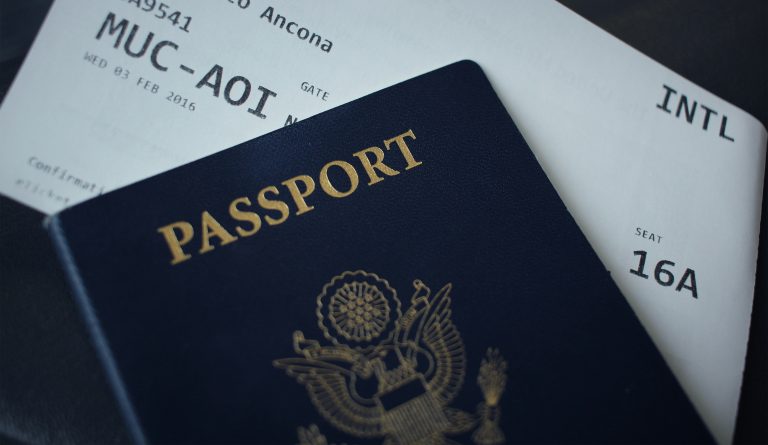Non-discriminatory Laws In Europe

Non-discriminatory laws are fundamental in the European legal structure and the world. They protect people based on their identity and characteristics. From the perspective of an employer, abiding by these laws plays a vital role in creating inclusive work environments and fostering diversity.
Moreover, these non-discriminatory laws have a significant impact on fostering inclusive workplaces. Employers have a moral responsibility to uphold these laws and create work policies, as well as seminars that promote equality, ensure fair treatment of employees, and prevent any form of discrimination. In this article, we will delve into types of discrimination, how Europe implements regulations that combat these prejudices, and how employers can successfully employ these European laws.
In combating discrimination, the EU introduced Article 19 of one of its treaties. This treaty implements non-discriminatory laws on six grounds, with three being sex, racial or ethnic origin, and religion. With regards to an international level, the UNCPRD, or UN Convention on the Rights of Persons with Disabilities, guides the laws of the EU.
Lastly, implementing these laws is under the Council Directive 2000/78/EC, known as the ‘Employment Equality Framework Directive.’ This directive aims to establish a general framework for equal treatment in employment and occupation. It explicitly addresses discrimination on the grounds of disability.
Listed below are some of the EU non-discriminatory laws that address protected grounds as discussed earlier.
Sex
- Gender Goods and Services Directive (2004/113/EC)
- CJEU, C-427/11, Kenny v. Minister for Justice, Equality and Law Reform, Minister for Finance and Commissioner of An Garda Síochána, 2013
- Gender Equality Directive (recast) (2006/54/EC)
Gender Identity
- Gender Goods and Services Directive (2004/113/EC), Art. 4 (1)
- CJEU, C-423/04, Richards v. Secretary of State for Work and Pensions, 27 April 2006
- CJEU, C-117/01, K.B. v. NHS Pensions Agency et Secretary of State for Health, 7 January 2004
Sexual Orientation
- Employment Equality Directive (2000/78/EC)
- CJEU, C-528/13, Léger v. Ministre des Affaires sociales, de la Santé et des Droits des femmes and Etablissement français du sang, 2015
- CJEU, Joined cases C-148/13 to C-150/13, A and Others v. Staatssecretaris van Veiligheid en Justitie [GC], 2014
Disability
- UN Convention on the Rights of Persons with Disabilities (CRPD)
- Employment Equality Directive (2000/78/EC)
- CJEU, C-354/13, FOA v. KL, 2014
Age
- Charter of Fundamental Rights, Art. 21
- Employment Equality Directive (2000/78/EC)
- CJEU, C-548/15, de Lange v. Staatssecretaris van Financiën, 2016
Nationality Or National Origin
- Charter of Fundamental Rights, Art. 45
- CJEU, C-392/15, European Commission v. Hungary, 2017
- CJEU, C-571/10, Kamberaj v. IPES [GC], 2012
Religion or Belief
- Charter of Fundamental Rights, Art. 10 and 21
- CJEU, C-188/15, Bougnaoui and ADDH v. Micropole SA [GC], 2017
- CJEU, C-157/15, Achbita and Centrum voor gelijkheid van kansen en voor racismebestrijding v. G4S Secure Solutions NV [GC], 2017
Now that we have a general knowledge of how the EU creates and implement non-discriminatory laws. What can an employer do to abide by said regulations and promulgate an inclusive environment for all individuals?
Develop A Comprehensive Policy
Create a written policy that defines procedures and rules, emphasizing the importance of a professional work environment based on skills, abilities, and knowledge. Furthermore, implementing a zero-tolerance approach towards harassment encourage employees to report incidents and assures confidentiality and protection for complainants.
Educate And Train Employees
Conduct regular training programs to raise awareness about discrimination issues, and familiarize employees with policies and procedures. By implementing such programs, especially with supervisors and managers, a trickle-down effect can occur as they play a crucial role in preventing discrimination and fostering a fair workplace.
Establish A Fair Resolution Process
Designate clear channels for reporting discrimination, ensuring that employees can safely and comfortably communicate their concerns to Human Resources, supervisors, or managers. With this, they can feel a sense of protection and the company’s commitment to equality.
Reduce Bias In Hiring
Implement strategies to address unconscious biases in the recruitment process. Furthermore, employers can offer awareness training to help employees recognize and overcome their own biases. Removing such biases can remove the root of the problem with people joining the company, creating an environment of individuals that are open-minded and inclusive.
These are only some, but by implementing these practices, employers can create a supportive and inclusive work environment, mitigate the risk of discrimination, and foster a productive and harmonious workforce.
Non-discriminatory laws in Europe play a vital role in promoting inclusive workplaces and safeguarding individuals’ rights. With a strong legal framework, employers are expected to uphold these laws to create fair and equal environments for their employees.
By developing comprehensive policies that the EU has greatly, employers have the much-needed guidelines to abide by these regulations.
Additionally, with a small snippet of how employers can employ non-discriminatory laws, such as addressing unconscious biases in the hiring process and implementing strategies, every individual can have the opportunity to be a part of a more inclusive world.
Global People is a leading local employment solutions provider for national and international corporations and can advise and escort you in your next destination.






